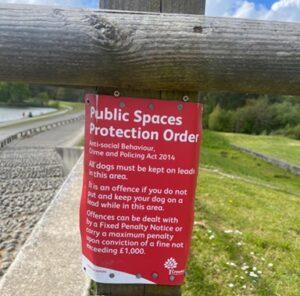The Statute of Limitations in the United Kingdom (UK) establishes time limits within which legal actions can be brought against individuals or entities for various offenses.
These limitations aim to strike a balance between the interests of justice and the need for legal certainty.
In the UK, each jurisdiction—England and Wales, Scotland, and Northern Ireland—has its own legislation governing limitation periods.
This article explores the key aspects of the Statute of Limitations in each jurisdiction, including time limits for offenses and exceptions.
Limitation Act 1980
The Limitation Act 1980 is a piece of legislation that governs the time limits within which legal actions can be brought for civil claims in England, Wales, and Northern Ireland.
It provides a framework for determining when a claim becomes “time-barred” or statute-barred, meaning that it cannot be pursued in court after a certain period has elapsed.
The key provisions of the Limitation Act 1980 include:
- General Limitation Period: Section 2 of the Act establishes a general limitation period of six years from the date the cause of action arises for most civil claims. This includes claims for breach of contract, personal injury, and negligence.
- Personal Injury Claims: Section 11 of the Act sets a specific limitation period of three years for personal injury claims arising from negligence, nuisance, or breach of duty. The three-year period usually begins from the date the injury occurred or from the date the injured party became aware of the injury.
- Latent Damage: Section 14A of the Act addresses claims for latent damage, where the injury or damage may not be immediately apparent. It allows for an extended limitation period of either three years from the date of knowledge or 15 years from the date of the negligent act or omission, whichever occurs first.
- Actions to Recover Land: Section 15 of the Act deals with actions to recover land, setting a limitation period of 12 years. This means that legal action to reclaim land or property must be initiated within 12 years from the date the right of action arose.
- Contracts and Specialty Debts: Section 5 of the Act establishes a six-year limitation period for actions founded on simple contracts or specialty debts. This includes debts arising from written agreements or deeds.
It is important to note that the Limitation Act 1980 does not apply to criminal offenses, which have separate rules and time limits for prosecution.
In the case of criminal acts, there are no statutory limits on the prosecution of crimes in the UK except for ‘summary’ offences (offences which are tried in the magistrates’ court). In these cases, criminal proceedings must be brought within 6 months. The Magistrates’ Courts Act 1980 (MCA 1980) applies.
There is no time limit for prosecution in England and Wales, including indictable crimes such as murder, manslaughter, war crimes and drug dealing offences.
Prescription and Limitation (Scotland) Act 1973
The Prescription and Limitation (Scotland) Act 1973 governs limitation periods for civil and criminal matters in Scotland.
- Time Limits for Offenses:
- Section 6 of the Limitation (Scotland) Act 1973 establishes a five-year limitation period for most personal injury claims, contracts, and torts.
- The limitation period for actions based on a right to recover land is 20 years from the date the right of action accrued.
Serious offenses such as murder, rape, and treason generally do not have a time limit for prosecution and can be brought forward at any time.
The Criminal Procedure (Scotland) Act 1995 sets out the procedures and powers of the lower courts in Scotland, which include the Justice of the Peace Courts and Sheriff Courts. The Criminal Procedure (Scotland) Act 1995 outlines the jurisdiction, powers, and functions of these courts, as well as the procedures for criminal cases in Scotland.
The Limitation (Northern Ireland) Order 1989
The Limitation (Northern Ireland) Order 1989 provides the framework for limitation periods for civil claims in Northern Ireland.
- Time Limits for Offenses:
- Section 6 of the Limitation (Northern Ireland) Order 1989 sets a general limitation period of six years for most civil claims, including contract disputes and personal injury cases.
- Actions to recover land have a limitation period of 12 years.
The Magistrates’ Courts (Northern Ireland) Order 1981. This order sets out the powers, procedures, and jurisdiction of the magistrates’ courts in Northern Ireland. It governs the operation of these courts and provides the legal framework for their functions and processes.
Conclusion
The Statute of Limitations in the UK varies across its jurisdictions. The Limitation Act 1980 applies to England and Wales, the Prescription and Limitation (Scotland) Act 1973 governs limitation periods in Scotland and the Limitation (Northern Ireland) Order 1989 sets the framework for Northern Ireland.
Check out our article on the highly questionable Sussex Family Justice Board and make up your own mind.
We recommend you should always seek formal legal advice if required, from a qualified and reputable lawyer (solicitor or barrister).
We have a number of links to Free Legal Resources and Legal Organisations on our Free Legal Advice , Legal Aid and Pro Bono pages.
Read the reviews of Gavin Howe Barrister
“He is awful, underhanded and should not be practising law!”
Latest Articles
- Direct Access BarristerA Direct Access Barrister, also known as a Public Access Barrister, enables members of the public to directly instruct a… Read more: Direct Access Barrister
- What is a Public Spaces Protection Order (PSPO)?A Public Spaces Protection Order (PSPO) is a powerful tool introduced in 2014 under the Anti-Social Behaviour, Crime and Policing… Read more: What is a Public Spaces Protection Order (PSPO)?
- Transparency and Open Justice BoardThe Lady Chief Justice of England and Wales, Dame Sue Carr, has created a new Transparency and Open Justice Board.… Read more: Transparency and Open Justice Board
- What is a Paralegal ?A paralegal is a legal professional who performs tasks that require knowledge of legal concepts but does not hold the… Read more: What is a Paralegal ?




